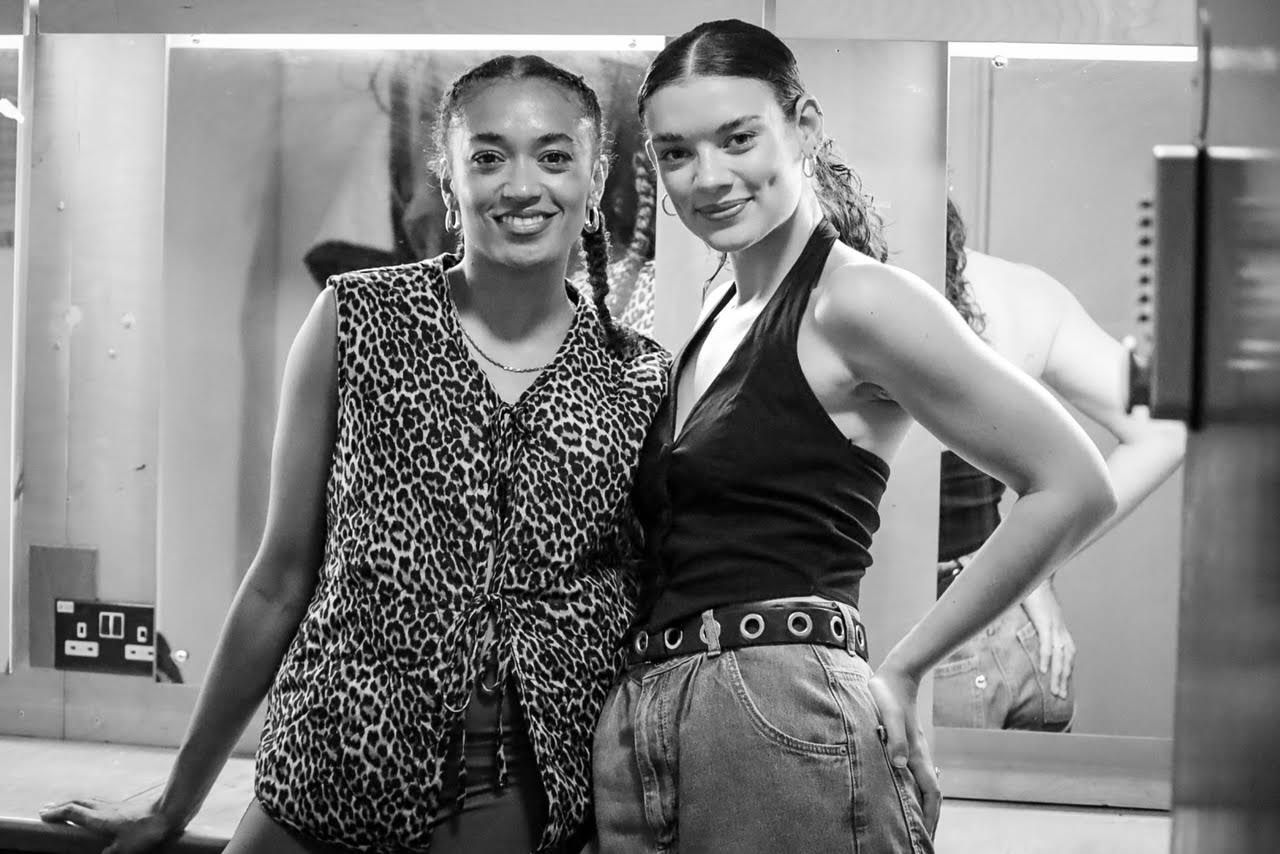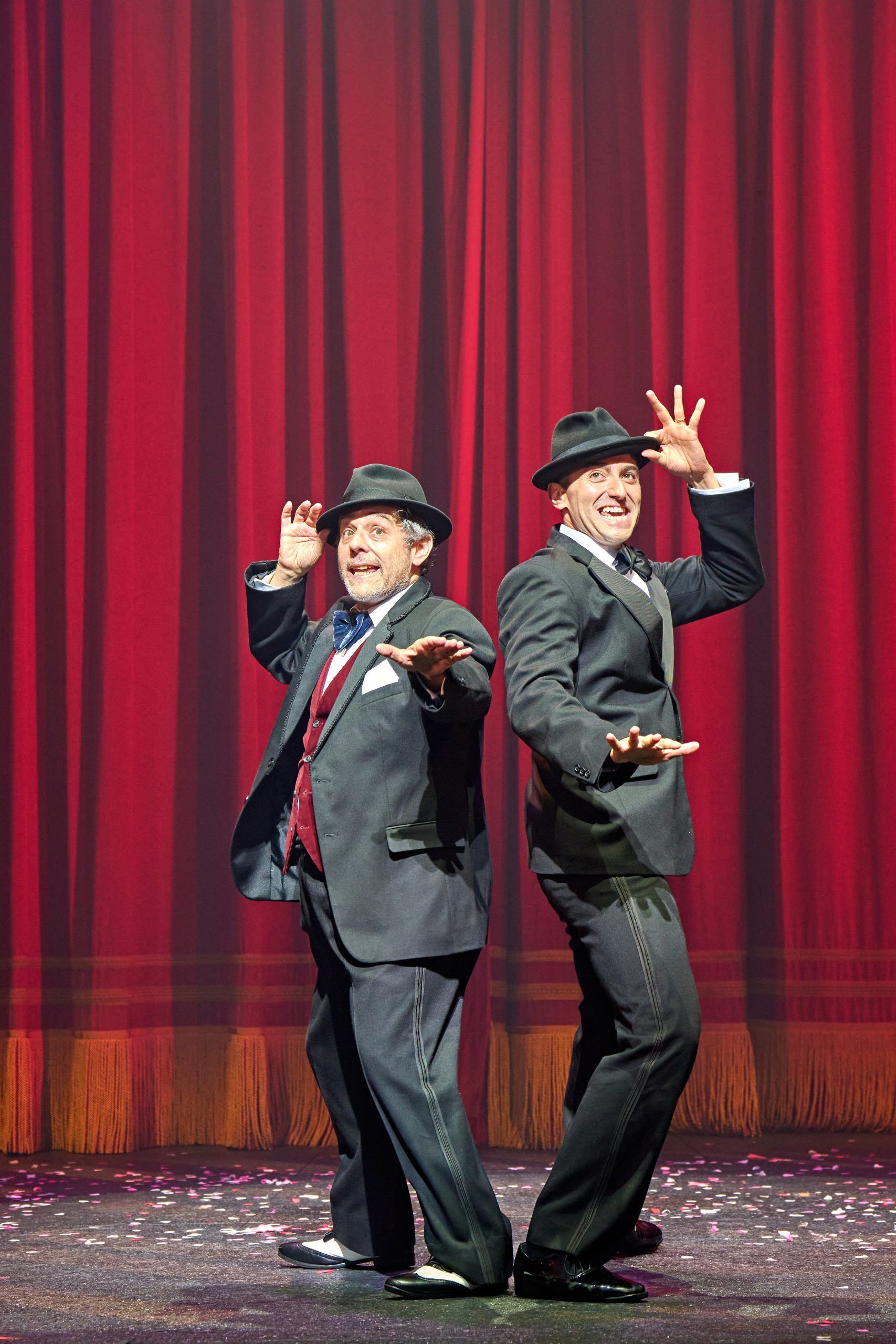For the past eight months, Jim Steinman’s hit musical Bat Out of Hell has been touring the UK for the second time. Partly inspired by Peter Pan, the dystopian rock musical features Steinman and Meat Loaf’s iconic songs, including I’d Do Anything for Love (But I Won’t Do That), It’s All Coming Back to Me Now, and Bat Out of Hell. The show first premiered in the UK in 2017 and has since garnered a worldwide cult following. Many cast members returning for this tour previously performed these roles on the show’s earlier run.
Katie Tonkinson and Georgia Bradshaw spoke to 1883 about revisiting their characters, the evolution of the show, and how their prior experience has shaped this latest tour.
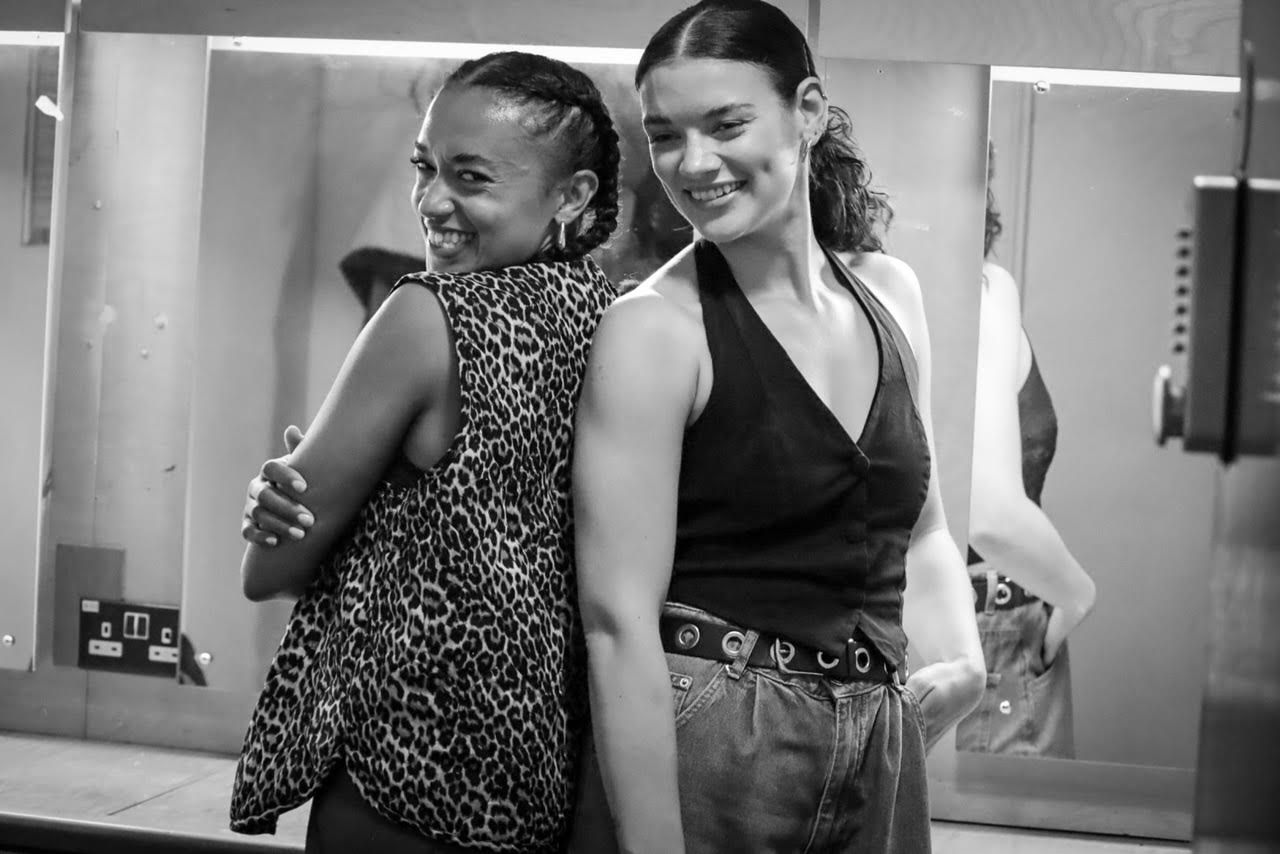
Firstly, how would you explain Bat Out of Hell to someone who hasn’t seen the show?
Katie: I’d say it’s more like a rock concert. It is a musical, but this tour is more of a hybrid. The story is kind of Peter Pan meets Romeo and Juliet, set against an epic rock score.
There have been so many iterations of this show. You both performed in a previous version—what makes this one special?
Georgia: From my experience, this version feels much more like a concert than a musical. Before, we were telling a story and performing as characters. Now, we’re telling the story and feeling like rock stars, especially with handheld microphones, which really change the energy. That’s what I love about it.
Katie: I’d add that the current tour feels more exposed. The set has been stripped back, with platforms instead of elaborate scenery, and the band is on stage. The focus is on the music and the voices, which makes the sound design feel epic. The beating heart of the show has always been the music, so this version lets you really immerse yourself in it.
How did you adjust to using handheld microphones, given your musical theatre backgrounds?
Georgia: Leading up to this, I did a lot of gigs with handheld mics, so it wasn’t hard at all. Before that, I only had experience with tiny head mics, and a year ago, I might have said the transition was difficult. But now it feels natural—I actually get excited to use the mic because it’s like a security blanket; you can hear yourself so well.
Katie: I’m lucky—I started in musicals only two or three years ago. Before that, I did gigs and production shows with in-ear monitors, so I was familiar with how they work. In this musical setting, it felt like the perfect combination of my two worlds—I’m really in my element.
Speaking of fans, Bat Out of Hell has a huge cult following. How has that affected you stepping into these roles?
Katie: It’s a double-edged sword. On one hand, it’s amazing—you automatically have a base of fans who will come to see the show. On the other hand, there’s pressure because people are passionate about past versions. Some might ask, “Will you sing it like the last performer?” or critique changes. But every new version brings a wave of new fans too.
Georgia: The fans are incredible. You end up knowing so much about them, and they about you. For example, when I got married, so many fans congratulated me at the stage door. It’s amazing and very personal. It’s exciting for them as much as it is for us when someone debuts in a role—they’re right there with us.
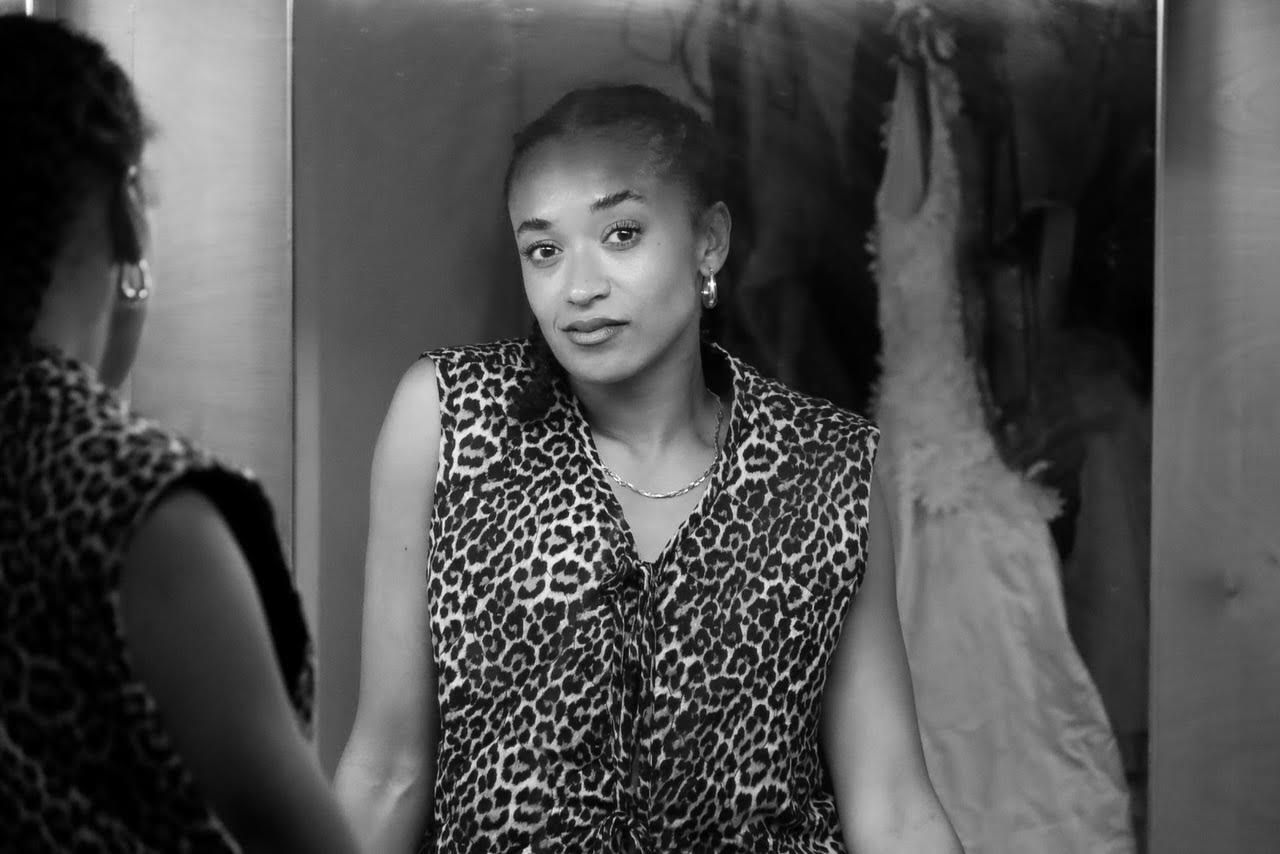
Both of you previously understudied these roles. How did that experience help you stepping into the new version of the show?
Katie: I covered Raven on the first tour, as the second cover. Early on, we had little rehearsal, and suddenly it was German press night—I was told, “You’re on.” It was intense but exhilarating. As a cover, you focus on delivering the show safely; you don’t change it. Getting this role now felt familiar, but I could finally explore the songs and make them my own.
Georgia: Mine was similar. I covered my role when the cast caught the plague in London, so I learned a lot just trying to follow the previous performer. Now, I’m lucky enough to play the role fully, and I’ve loved it.
How much musical freedom are you given, given the iconic nature of the songs?
Georgia: When you rehearse with Mike (Michael Reed, Musical Supervisor), you can sing how you like, and he gives guidance if you deviate too much. Once press night hits, the structure is set, but certain sections remain flexible.
Katie: Even if you’re not feeling your best, you can adjust without compromising the song—you can bring it back to its original form if needed.
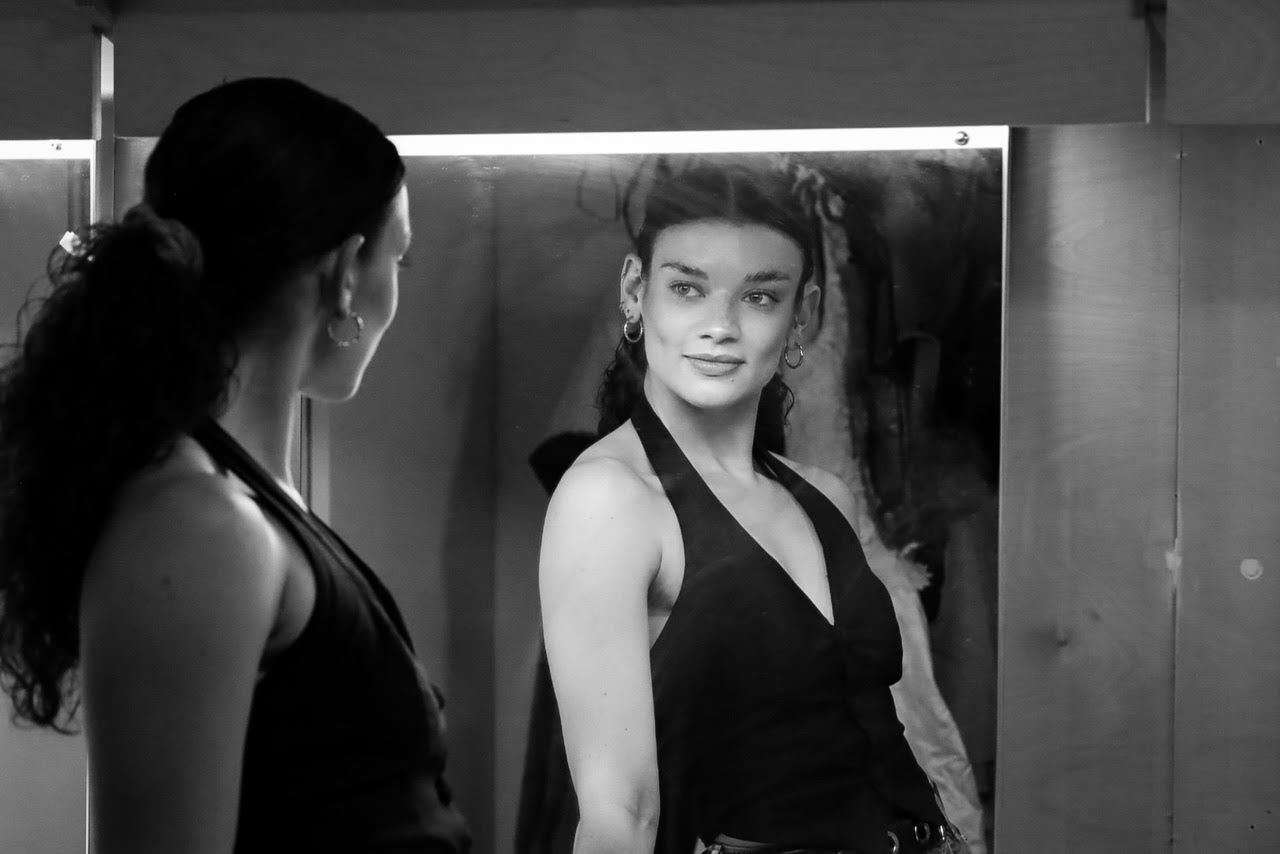
Touring must be demanding with vocally intense songs. How do you manage it?
Katie: It’s tough. On previous tours, we had more days off to decompress. Now, with only Sundays off, it’s a bit more intense. I try to sleep well, eat well, and exercise. We even have a tour exercise club.
Georgia: We really enjoy touring. As a company, we do lots of activities like paddleboarding. I’ve even had three hens’ parties on tour!
Katie: Each city has a Social Secretary who gives recommendations for coffee, brunch, walks, and activities. Having a sense of community makes the tour manageable and fun, despite the pressure of travel and rehearsals.
Tickets for the tour are available at batoutofhellmusical.com.

